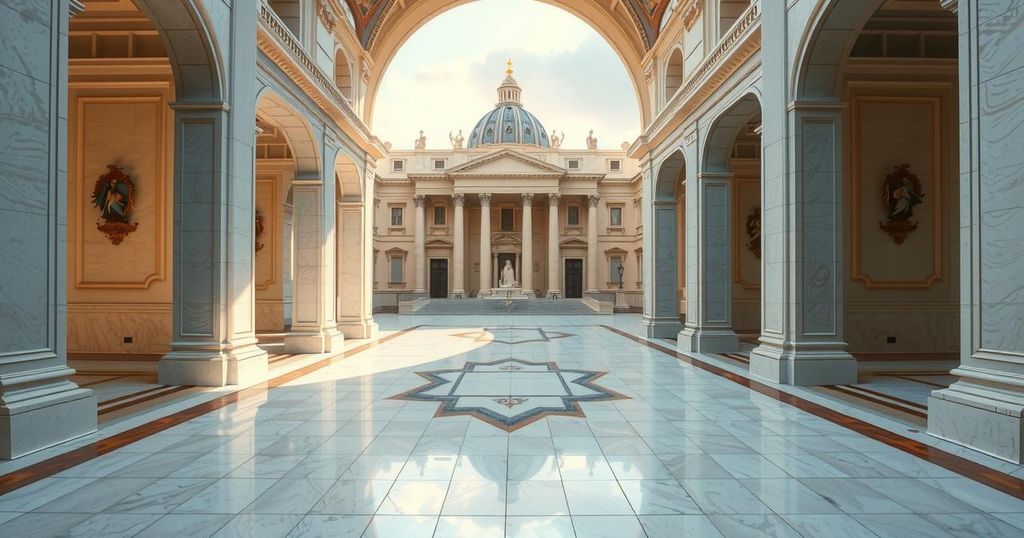Colombian President Petro Meets Pope Leo XIV: Climate and Peace Top the Agenda

Colombian President Gustavo Petro met Pope Leo XIV at the Vatican, discussing urgent topics such as climate change, internal conflict, and migration. Petro emphasized that addressing climate change should take precedence over other agendas, warning that failure to do so would have dire consequences. He also invited the Pope to visit Colombia, suggesting significant locations that hold deep cultural and historical importance.
Colombian President Gustavo Petro had a significant meeting with Pope Leo XIV at the Vatican on May 19, 2025. The gathering lasted 22 minutes and was held in the private chambers of the Apostolic Palace. This was Petro’s initial engagement with the newly elected pontiff, and reports suggest the discussions were both cordial and charged with emotion, given the serious nature of the topics discussed.
Petro made strong statements, particularly about climate change, which he articulated as a pressing global issue that should take precedence over many other concerns. He expressed to the Pope, “If the U.S. government continues to treat migration as the core issue, it will end up sacrificing its own children.” This rather blunt remark emphasizes that climate change is not just an environmental problem but a critical humanitarian crisis that needs urgent attention.
The Colombian leader also showed hope that Pope Leo XIV—who has roots in the United States and understands Latin American struggles—could serve as a vital conduit for awareness about issues affecting life itself. He urged the pontiff to help Washington recognize this ultimate priority: the survival of humanity in the face of climate disaster.
The dialogue took a turn towards Colombia’s internal challenges, particularly the evolution of its guerrilla factions, like the ELN. Petro pointed out that these groups have strayed from their original missions, becoming involved in narcotrafficking. Despite this, he indicated that there remains a possibility for reconciliation in the future.
Referring to the ongoing peace talks happening in Cuba and Venezuela, Petro thanked those nations for their assistance. Nevertheless, he suggested that the Vatican might serve as a uniquely relevant venue for negotiations, introducing the concept of “effective love” as a political principle that could drive transformation in Colombia.
In a separate meeting following his audience with the Pope, Archbishop Paul Richard Gallagher, who heads the Vatican’s diplomatic relations, met with President Petro. This meeting aimed to reinforce the strong diplomatic relationship between Colombia and the Holy See, emphasizing both sides’ commitment to peace and dialogue throughout the region.
Petro also turned his thoughts to the spiritual realm, sharing reflections from a visit to Sant’Egidio community, which holds artifacts from the Holy Land. He drew connections between historical struggles and modern-day conflicts, particularly referencing global violence in regions like Palestine.
Before his departure, President Petro formally invited Pope Leo XIV to visit Colombia and expressed his vision for the trip. He suggested the Pope should not only visit Bogotá, the capital, but also significant spiritual sites such as Chiribiquete National Park in the Amazon rainforest and Santa Marta, an area revered by local Indigenous groups.
Petro emphasized the importance of Chiribiquete, noting that it is rich in cultural history, symbolizes resilience against colonial narratives, and is threatened by environmental degradation. He remarked that it was “the first land to rise from the waters,” further underscoring its connection to both ecological and historical legacies.
In summary, President Gustavo Petro’s meeting with Pope Leo XIV addressed critical issues facing Colombia, including climate change and internal conflict. Petro’s appeal to prioritize the climate crisis and his hope for the Pope as a mediator with the U.S. government underscored the urgency he feels about these matters. The dynamic nature of their discussions highlights a potential partnership in navigating both national and global challenges, with an emphasis on peacebuilding and reconciliation. Petro’s invitation for the Pope to visit Colombia also reflects a desire for spiritual solidarity with the region’s ongoing struggles.
Original Source: zenit.org







